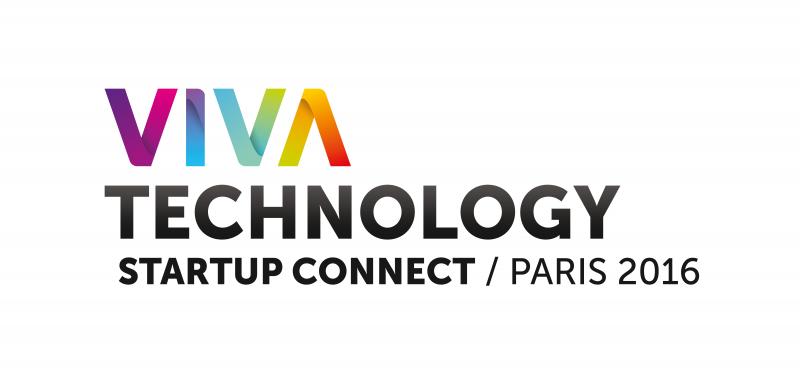After Brexit, Will Paris Become The New Startup Hub In Europe?

Paris will be the capital of technology innovation and startups for the next three days with more than 5,000 startups, 400 speakers, 30,000 attendees, and 100 top VCs attending Viva Technology Paris.
CEOs and CMOs of the largest French companies will attend and speak as well as Eric Schmidt from Alphabet/Google, John Chambers from Cisco, David Marcus and Sheryl Sandberg from Facebook, Tim Armstrong from AOL, Robin Li from Baidu, Yuanqing Yang from Lenovo, and many others.
Vendors will demonstrate lots of innovation, including Sony Playstation’s Virtual Reality, Tilt Brush and Jacquard by Google, and Facebook’s pop-up, not to mention numerous talks and roundtables on AR, VR, drones, robots, 3D printing, wearable tech, machine learning, and connected cities and homes.
Let’s face it: Until now, London was the primary digital hub attracting lots of startups, investor money, and digital talent. Following Brexit, Forrester expects digital and customer-facing talent to migrate out of the UK. Beyond company headquarters, there is a new competition between Paris, Berlin, Dublin, Amsterdam, and Barcelona, and many other cities to attract startups and R&D centers.
The timing is perfect for Viva Technology Paris to offer a unique opportunity to showcase France’s assets:
- An opportunity to enter the EU market and also move forward in African markets. US companies in particular took a Trojan horse approach by starting with London as the hub for their activities in continental Europe. This worked relatively well due to close cultural and economic links between the two nations, but more often than not, US companies realized a bit late that it took a lot more effort to localize their go-to-market strategies for continental Europe. Fiscal issues here will play a big role here in the competition between Paris, Dublin, Amsterdam, and Berlin. Interestingly, France has a long-term advantage: the close linguistic and economic ties with many African markets. Moving forward, a combination of demographic growth and digital opportunities will open up the African market. An interesting sign of this is Orange’s recent investment in Africa Internet Group, Africa’s first billion-dollar tech firm.
- A vibrant entrepreneur and startup ecosystem with VC money. In the recent past, several French entrepreneurs have radically changed the business mindset. Loic Le Meur, Xavier Niel, Marc Simoncini, Jacques-Antoine Granjon, Pierre Kosciusko-Morizet, Gilles Babinet, and many others have demonstrated that digital is not just a threat but also a huge business opportunity. The support of the French government with the French Tech initiative, coupled with the success stories of BlaBlaCar, Criteo, and SigFox, helped raise France’s profile. Station F, the largest startup incubator worldwide, will open up in 2017. French startups increasingly manage to get seed money, even if they end up being acquired when they start scaling globally (e.g., Withings being acquired by Nokia) due to the lack of Series B funding. This is starting to change with Partech, a Paris-based VC firm, raising $440 million for its growth fund.
- A workforce with key digital skills and a strong R&D environment. There is a good reason why Facebook opened its artificial intelligence research center in Paris. France is one of the leading countries when it comes to math, physics, data science, and robotics research. Many Fields medalists have been working for French public universities. Initiatives like Ecole 42 from Xavier Niel (being replicated in the Silicon Valley) will also help, even though a lot more has to be done in the space. The French government is also pushing for specific fiscal incentives in the R&D space, making it more interesting to recruit in France.
In this race to attract digital talent and startups, many other European cities have key assets. The challenge, however, is more about how to work with startups and leverage them to transform the culture of large enterprises. This is one of the key topics addressed at Viva Technology Paris. There are some great initiatives from French companies like Axa, Accor, Orange, and several others, but by and large, it is time to accelerate digital transformation for French companies.
“Culture eats strategy for breakfast.” These words, often attributed to Peter Drucker, are frequently quoted by people who see culture at the heart of all great companies. Strategy is on paper, whereas culture determines how things get done. Beyond the startup and technology hype, it is time for organizations to accelerate beyond digital labs, hackathons, or incubating a few startups. A chief digital officer may help orchestrate initiatives and diffuse the digital culture in the organization, but it is really for the CEO to step in and for HR to help change the mindset and evolve the culture.
Hopefully, Viva Technology Paris will help French companies wake up to this and accelerate their digital transformation.
I am planning some new research on the Global Digital Divide looking at how marketers embrace digital opportunities and challenges in different regions. If you’re interested, feel free to contact me directly.
